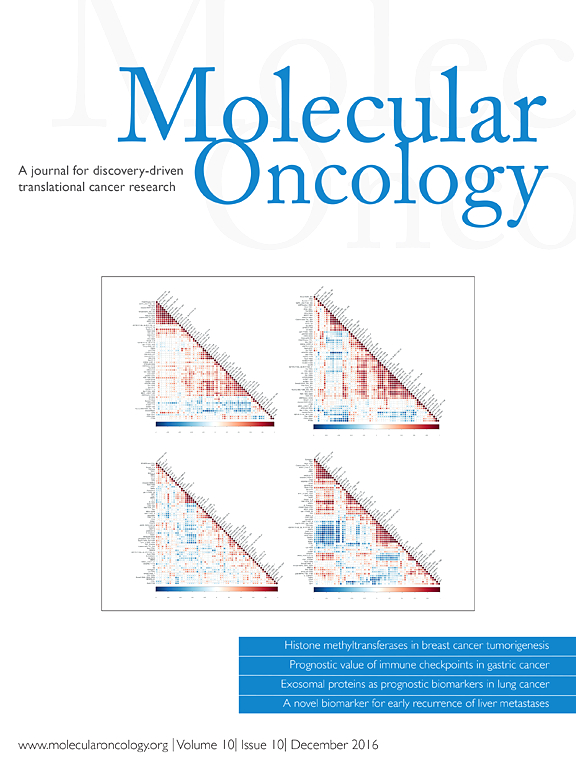低密度脂蛋白受体家族在高级别胶质瘤中的多方面治疗作用
IF 6.6
2区 医学
Q1 Biochemistry, Genetics and Molecular Biology
引用次数: 0
摘要
低密度脂蛋白受体家族(LDLR)的作用多种多样,与维持中枢神经系统(CNS)健康和导致神经系统疾病或癌症的许多关键过程有关。在这篇综述中,我们将全面介绍低密度脂蛋白受体参与常见脑肿瘤(尤其是高级别胶质瘤)的情况,强调由于低密度脂蛋白受体的高表达,该受体在这些肿瘤的病理生理学和进展过程中起着关键作用。我们深入探讨了 LDLR 在调节细胞摄取和通过脑屏障转运方面的作用。此外,我们还强调了 LDLR 在激活与肿瘤增殖、迁移和侵袭有关的多种信号通路中的作用,让读者深入了解其中的分子机制。本综述综合了当前的研究成果,强调了 LDLR 在肿瘤发生过程中的重要作用,并探讨了其作为高级别胶质瘤治疗靶点的潜力。本文提出的集体见解有助于深入了解 LDLR 的多方面作用以及对生理和病理状态的影响,为肿瘤治疗开辟了新途径。本文章由计算机程序翻译,如有差异,请以英文原文为准。
The multifaceted therapeutical role of low‐density lipoprotein receptor family in high‐grade glioma
The diverse roles of the low‐density lipoprotein receptor family (LDLR) have been associated with many processes critical to maintaining central nervous system (CNS) health and contributing to neurological diseases or cancer. In this review, we provide a comprehensive understanding of the LDLR's involvement in common brain tumors, specifically high‐grade gliomas, emphasizing the receptors' critical role in the pathophysiology and progression of these tumors due to LDLR's high expression. We delve into LDLR's role in regulating cellular uptake and transport through the brain barrier. Additionally, we highlight LDLR's role in activating several signaling pathways related to tumor proliferation, migration, and invasion, engaging readers with an in‐depth understanding of the molecular mechanisms at play. By synthesizing current research findings, this review underscores the significance of LDLR during tumorigenesis and explores its potential as a therapeutic target for high‐grade gliomas. The collective insights presented here contribute to a deeper appreciation of LDLR's multifaceted roles and implications for physiological and pathological states, opening new avenues for tumor treatment.
求助全文
通过发布文献求助,成功后即可免费获取论文全文。
去求助
来源期刊

Molecular Oncology
Biochemistry, Genetics and Molecular Biology-Molecular Medicine
CiteScore
11.80
自引率
1.50%
发文量
203
审稿时长
10 weeks
期刊介绍:
Molecular Oncology highlights new discoveries, approaches, and technical developments, in basic, clinical and discovery-driven translational cancer research. It publishes research articles, reviews (by invitation only), and timely science policy articles.
The journal is now fully Open Access with all articles published over the past 10 years freely available.
 求助内容:
求助内容: 应助结果提醒方式:
应助结果提醒方式:


